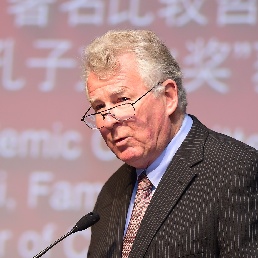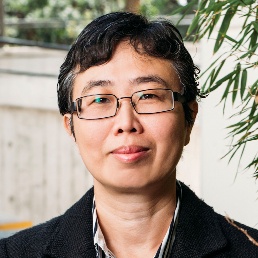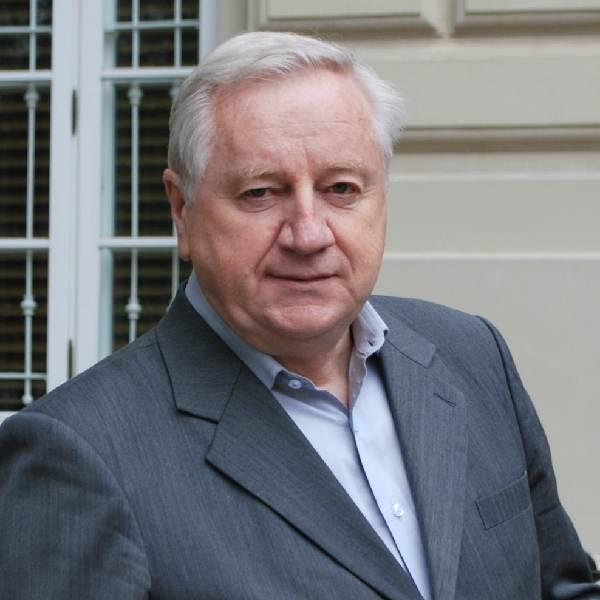Call for Paper Proposals
The rise of China and its impact on international affairs have been the focus of numerous publications and academic debates around the world. This Conference seeks to move this discussion beyond the intellectual boundaries of well-established theories and mainstream academic discourse. The assessment of Chinese influence on the international system and China’s potential status as a global hegemon calls for inclusive, multidisciplinary approaches. It also requires examining China’s international behaviour in the light of its cultural heritage.
We would like to propose the following research questions:
- How far do Chinese political traditions determine the decision-making process in the P.R.C.?
- What are the domestic and global determinants of China’s contemporary international strategy and foreign policy?
- How can China’s approach towards international rules and institutions be interpreted through Western and non-Western intellectual traditions?
- What are the consequences of China’s rise for liberal democracies and the liberal world order?
- What are the major mutual perceptions of China and the West in international political discourse?
- What are the patterns of China’s current bilateral relations with other international players?
Submission Formats
We invite scholars in China Studies and IR to contribute to an interdisciplinary discussion on the role of China in international relations. We welcome papers presenting various perspectives of global academic discourse relating to the above-mentioned research questions.
- Individual research paper abstracts – an individual research presentation on any topic that relates to one of the research questions listed above. The abstract should not exceed 250 words, and the presentation should fit into a 20-minute address.
- Panel proposals – a group of four or five scholars led by a moderator to discuss a specific topic relating to one of the research questions listed above that will result in one or more papers. A paper proposal should not exceed 300 words and the whole discussion, inclusive of individual presentations, should not exceed 120 minutes.
- Roundtable proposals – an opportunity for a group of scholars to discuss a particular issue in depth relating to one of the research questions listed above without the constraints of having to present a paper. A roundtable submission described in no more than 300 words should include a minimum of five participants and a chair.
Submission Review Process
All submissions of individual paper abstracts, panels and roundtable proposals will be peer reviewed by the Conference Scientific Committee. Working in thematic groups, the committee will collect, accept or reject submissions, as well as contact applicants for further discussion should ideas for any new panels arise based on the submissions received.
All applicants will receive a response to their proposals.
Diversity and equal opportunity – the organizers of the Conference strongly support diversity of gender, ethnicity and career stage and encourage those proposing panels and roundtables to take such values into consideration.
Download Conference Program
Important Dates:
June 2, 2022
final program announcement
Conference Fees:
Regular fee: EUR 110
Ph.D. candidates: EUR 50
If you wish to only listen to lectures and panel discussions, please register as a passive participant. Please provide your e-mail address to receive a link to the live transmission.
Passive participants: EUR 25
If your paper, panel or roundtable submission is accepted, you will receive an e-mail with payment information and links to process an online payment.
Payment deadline: April 1st to May 31st, 2022 – for all participants
Invoices will be issued upon an e-mail request.
Pay Conference Fee
Organizers
The conference will be organised in hybrid form, with participants both on-site in Warsaw, and online. If global health situation permits, we strongly suggest for presenters to arrange for a personal visit to Poland. The first day of the Conference will take place at the SWPS University and the second day at the University of Warsaw.
While you’re in Warsaw
We propose a series of guided activities during your stay at the Conference:
- Pre-conference morning walk or run (for joggers) through the Royal Lazienki Museum Park
- Pre-conference Warsaw World War 2 sightseeing walk (Polin Museum and Warsaw Uprising Museum)
- Pre-conference pub reception and beer tasting
- Post-conference cultural event.
More details will be provided at a later stage. We will make sure your stay in Poland is not only academically stimulating but it is also a memorable experience with a good time to enjoy together.
Keynote Speakers

Roger T. Ames
Professor
is Humanities Chair Professor at Peking University, Academic Director of the Peking University Berggruen Research Center, and Professor Emeritus of Philosophy at the University of Hawai’i. He is former editor of Philosophy East & West and founding editor of China Review International. Ames has authored several interpretative studies of Chinese philosophy and culture: Thinking Through Confucius (1987), Anticipating China (1995), Thinking from the Han (1998), and Democracy of the Dead (1999) (all with D.L. Hall), Confucian Role Ethics: A Vocabulary (2011), and most recently Human Becomings: Theorizing ‘Persons’ for Confucian Role Ethics (2021). His publications also include translations of Chinese classics: Sun-tzu: The Art of Warfare (1993); Sun Pin: The Art of Warfare (1996) (with D.C. Lau); the Confucian Analects (1998) and the Chinese Classic of Family Reverence: The Xiaojing (2009) (both with H. Rosemont), Focusing the Familiar: The Zhongyong (2001), and The Daodejing (with D.L. Hall) (2003). Almost all of his publications are now available in Chinese translation, including his philosophical translations of Chinese canonical texts. He has most recently been engaged in compiling the new Sourcebook of Classical Confucian Philosophy with its companion A Conceptual Lexicon of Classical Confucian Philosophy, and in writing articles promoting a conversation between American pragmatism and Confucianism.

Paul Irwin Crookes
Associate Professor
is the Director of Graduate Studies at the Oxford School of Global and Area Studies in the University of Oxford where he teaches on China’s international relations and foreign policy. He gained his M.Phil. and Ph.D. degrees from the Centre of International Studies at the University of Cambridge and holds a B.Sc. (Economics) from the London School of Economics. He embarked on an academic career after working for 20 years in the international IT industry. Professor Crookes has particular interests in EU-China relations, China’s innovation capabilities and the security issues of cross-Taiwan Strait relations. His work includes The Politics of EU-China Economic Relations: An Uneasy Partnership (Palgrave Macmillan, 2016), co-authored with John Farnell, and he has published his research in journals such as China Information, Journal of Current Chinese Affairs, International Politics, European View, The RUSI Journal, and European Foreign Affairs Review. He has also written articles for policy forums such as Asia Dialogue, ChinaFile and Europe’s World as well as delivered presentations to leading think-tanks such as Chatham House and RUSI in London and the EU-Asia Centre in Brussels.

Huiyun Feng
Associate Professor
Senior Lecturer in the School of Government and International Relations at Griffith University, Australia. She is a former Jennings Randolph Peace Scholar at United States Institute of Peace and Co-CI of a three-year MacArthur Foundation project “How China Sees the World”. Her publications appeared in European Journal of International Relations, Security Studies, The Pacific Review, International Politics, International Affairs, Cambridge Review of International Studies, Chinese Journal of International Politics, Journal of Contemporary China, etc. She is the author of Chinese Strategic Culture and Foreign Policy Decision-Making: Confucianism, Leadership and War (Routledge, 2007) and co-author of Prospect Theory and Foreign Policy Analysis in the Asia Pacific: Rational Leaders and Risky Behaviour (Routledge, 2013), How China Sees the World: Insights from China’s International Relations Scholars (Palgrave 2019) and Contesting Revisionism: China, the United States, the Transformation of International Order (Oxford University Press, 2021). Her recent co-edited volume is China’s Challenges and International Order Transition: beyond Thucydides’s Trap (University of Michigan Press, 2020).

Bogdan J. Góralczyk
Professor
is a political scientist and sinologist. He currently serves as a professor of the Centre for Europe at the University of Warsaw. He is the former Ambassador of Poland to Thailand and head of the Polish diplomatic missions to Burma and the Philippines. His most recent publications available in Polish are: three volumes of comprehensive account of four decades of transformation in China (2018-22), Trianon Syndrome in Hungary (2020) and a book-long essay on Burma/Myanmar (2021). He has published numerous books on China, Central Europe, Hungary and the CE. Professor Góralczyk is also a Head of Editorial Board of the Studia Europejskie - Studies in European Affairs quarterly.

Richard Griffiths
Professor
is an economic historian who graduated with a B.Sc. (Econ) (Wales) and a Ph.D. (Cambridge). He has taught in Manchester and has been a professor in Amsterdam, the EUI (Florence) and Leiden. He has worked in developing MOOCs with Leiden’s Centre of innovation and received Corsera’s ‘Oustanding Educator Award for Innovation’. He has published widely on topics ranging from 19th and 20th century economic development, economic integration, political economy, development economics, ‘small states’ and, most recently, China’s Belt and Road Initiative. At present, he runs the New Silk Roads project at the Institute for Asian Studies, which attempts to place the BRI in a relevant comparative context. His recent books include Revitalising the Silk Road (2017), The New Silk Road (2018), The Maritime Silk Road (2019) and (edited with A.C. Hughes) In the Way of the Road. The Ecological Consequences of Infrastructure (2021). He is currently completing a manuscript on China and the Ports of the Indian Ocean.

Stephen Nagy
Associate Professor
teaches at the International Christian University in Tokyo. He is also a fellow at the Canadian Global Affairs Institute (CGAI) and a visiting fellow with the Japan Institute for International Affairs (JIIA). He is currently the Director of Policy Studies for the Yokosuka Council of Asia-Pacific Studies (YCAPS) and a Governor for the Canadian Chamber of Commerce in Japan (CCCJ). He was a Distinguished Fellow with the Asia Pacific Foundation from 2017-2020. His recent funded research projects are “Sino-Japanese Relations in the Wake of the 2012 Territorial Disputes: Investigating changes in Japanese Business’ trade and investment strategy in China”, and “Perceptions and drivers of Chinese view on Japanese and US Foreign Policy in the Region”. He is currently working on middle power approaches to great power competition in the Indo-Pacific. His recent publications include Quad-Plus? Carving out Canada’s Middle Power Role (2020), Indo-Pacific Resilience, Prosperity and Stability: Canada’s Capabilities-led Approach to Strategic Free and Open Indo-Pacific Engagement (2021), Sino-Japanese Reactive Diplomacy as seen through the Interplay of the Belt and Road Initiative and the Free and Open Indo-Pacific Vision (2021).

Yongjin Zhang
Professor
currently teaches International Politics at the University of Bristol in the United Kingdom. He holds M.Phil. and D.Phil. both in International Relations from the University of Oxford. His principal research interest and publications cut across the boundaries of international relations theory and Chinese history, politics, economic transformation and international relations. He has also published in the area of the political economy of Chinese global businesses and that of East Asian regionalism and regional security in the Asia-Pacific. One of his current research projects is on "International Relations in Ancient China: Ideas, Institutions and Law", an interdisciplinary research drawing upon political philosophy, history of ideas, ancient history and international relations theory. His recent publications include "Barbarising” China in American trade war discourse: The Assault on Huawei (2021), The Chinese School, Global Production of Knowledge and Contentious Politics in the Disciplinary IR (2020), China and the Global Reach of Human Rights (2019).
Scientific Committee
Aleksandra Jaskólska, Ph.D.
University of Warsaw
SWPS University, Polish Academy of Sciences
Financing, in the amount of PLN 49,500 (total value PLN 57, 239), provided by the Ministry of Education and Science (MEiN) as part of the Doskonała Nauka (Excellent Science) program.